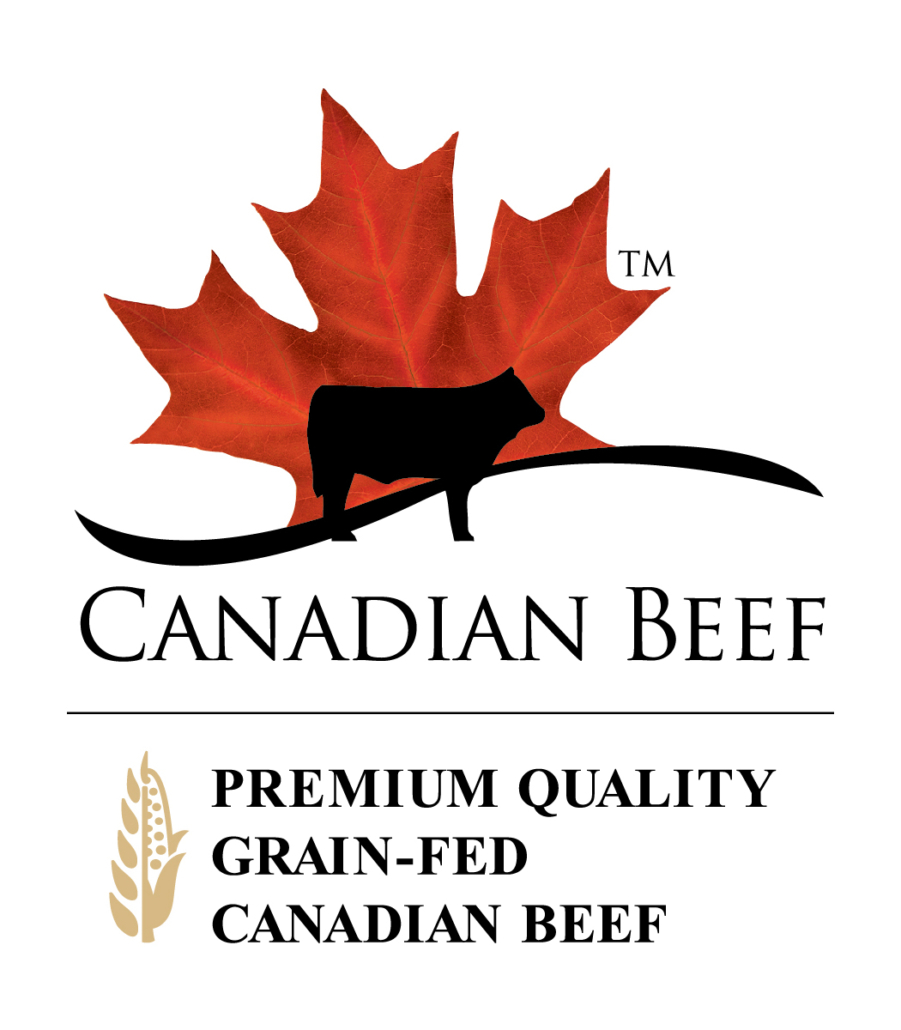Food from Greener Pastures

Beef Producers: Stewards of the land, for now and for the future
For most of us Earth Day comes just once a year. Sure we recycle, turn lights out when leaving a room, use cold water to do our laundry and other such things in the name of conservation. But how many of us think about our direct impact on the land as part of our daily lives? How many people do you know whose livelihood, and that of future generations, is directly affected by how they do their jobs every day?
For Canada’s 86,000 beef producing families, caring for the land is what they do 365 days a year. While producing a high quality food source is their business, sustaining the land is essential for their business to survive.
Kim and Charlie Sytsma of Eight Line Farm in Ontario are just one example of a beef producing family who not only sustain their land, but improve it. Recently awarded this year’s Ontario Environmental Stewardship Award (TESAward) sponsored by the Ontario Cattlemen’s Association and RBC Royal Bank, Kim and Charlie say “we’re just doing what all our neighbours are doing. To be singled out from such a great group of colleagues is a very humbling experience.”
As residents of Leeds County, a portion of Elbe creek runs through their farm. Working with the Leeds County Stewardship Council, the Sytsma’s restored over 1.5 kilometers of riparian shoreline habitat through the construction of three-kilometers of fencing controlling access to the stream. Now the Sytsma’s 480 cattle are watered using a total of five solar watering systems. In addition, through their efforts to protect Elbe creek, the Sytsma’s have protected a primary source of water for Charleston Lake – a lake which boasts the most southerly self-reproducing Lake Trout population in Ontario.
Kim says, “I am proud of the food our family produces and prouder still that our farm land is preserved and improved for my grandchildren to enjoy. Being Canadian, I know how precious our diverse landscape and fresh clean water are. As a steward of the land, it’s my job is to leave it better than I found it.”
Here are some of the things Canada’s beef producing families do every day to ensure both the land they manage and the business they built not only are sustained, but improved for future generations of Canadians.
competition held August 8, 2010 in Calgary, AB.
TESAward recognizes the outstanding environmental stewardship of an Ontario cattlemen. Special consideration is given to producers who have taken innovative approaches towards furthering the environmental sustainability of their food production.
- By practicing good grazing management they maintain biodiversity and wildlife habitat on wild grasslands and prevent erosion on susceptible parts of cultivated land.
- Beef cattle production in Canada is among the most efficient in the world. Canadian scientists estimate the greenhouse gas emissions/kg live animal weight decreased from 16.4 to 10.4 kg of CO2 equivalent in the last 20 years.
- Grazing animals on agricultural land not suitable for crops more than doubles the land area that can be used to produce food in Canada.
- A mature beef animal will drink between 35 and 66 litres of water per day, depending on the temperature. Most of the water cattle drink returns to the soil as part of the natural recycling process. To help put it into perspective, it takes 35 litres of water to process one can of vegetables and 5,678 litres to produce a barrel of beer.
- Cattle are often raised on land that is unsuitable for producing grain or vegetable crops and they eat grasses that people can’t digest. Cultivating this land for food crops would destroy natural habitat and impact wildlife. In Canada, nearly one third of our agricultural land is unsuitable for crops but is suitable for grasses which are used to raise cattle and support wildlife.
- Cattle production is an effective and efficient way to provide a nutrient-dense protein by converting non-human quality forage/crop products into meat products.
- Many cattle producers’ develop environmental farm plans that help them utilize good management practices reducing the environmental footprint of Canadian agriculture.
Canadian beef producers maintain and improve Canada’s natural capital: our land; water and air; at their own private cost. By ensuring the beef you buy is Canadian, you are supporting their efforts.
To read more about Canadian cattle producers’ environmental stewardship efforts, visit http://www.cattle.ca/ghg-factsheets/ and http://www.cattle.ca/just-facts-global-warming/
Download a factsheet with further information.





Dejar un comentario
¿Quieres unirte a la conversación?Siéntete libre de contribuir!